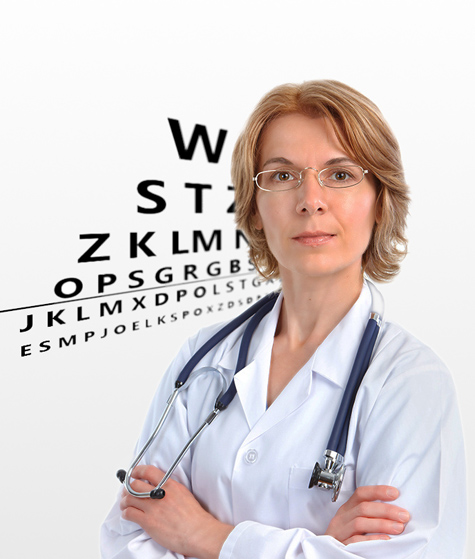What is an Optometrist?

Your sight depends on seeing the right eye doctor at the right time.
When it’s time to “get your eyes examined,” make sure you are seeing the best possible eye care professional for your needs. Ophthalmologists, optometrists and opticians each play an important role in providing eye care to consumers.
Optometrist
Optometrists are your primary eye care providers or eye doctors who provide primary vision care ranging from sight testing and correction to the diagnosis, treatment, and management of vision changes including the diagnosis and treatment of ocular diseases. They are licensed to practice optometry, which primarily involves performing eye exams and vision tests, prescribing and dispensing corrective lenses, detecting certain eye abnormalities, and prescribing medications for treating and managing applicable eye diseases.
The training for an Optometrist is quite rigorous including clinical medicine, anatomy, histology, advanced pharmacology and the appropriate background to treat medical issues that may effect the eyes. An optometrist receives a doctor of optometry (OD) degree after completing four years of optometry school, preceded by four years of undergraduate college.It is important to safeguard your vision by seeing the right eye care professional. Without healthy vision, our ability to work, play, drive or even recognize a face can be drastically affected. Many factors can affect our eyesight, including other health problems such as high blood pressure or diabetes. Having a family member with eye disease can make you more prone to having that condition as well. Sight-stealing eye disease can appear at any time. Very often they are unnoticeable at first and are difficult to detect.
At the Optometric Eye Site we are lucky to have three excellent Optometrists on our staff. In our Oxford Eye Care Center and Henderson Eye Care Center the principle optometrist is Dr. David Coward.
That’s why it is so important to see an optometrist for a complete medical eye exam by age 40, and then as often as prescribed by your Optometrist.
Ophthalmologist
An ophthalmologist — Eye M.D. — is a medical or osteopathic doctor who specializes in eye and vision care. Ophthalmologists differ from optometrists and opticians in their levels of training and in how they can treat. As a medical doctor who has completed college and at least eight years of additional medical training, an ophthalmologist is licensed to perform advanced surgeries. Although Optometrists also do some minor surgeries, an ophthalmologist does more complicated and invasive surgeries. An ophthalmologist diagnoses and treats all eye diseases, performs eye surgery and prescribes and fits eyeglasses and contact lenses to correct vision problems.
Optician
Opticians are technicians trained to design, verify and fit eyeglass lenses and frames, contact lenses and other devices to correct eyesight. They use prescriptions supplied by ophthalmologists or optometrists, but do not test vision or write prescriptions for visual correction. Opticians are not permitted to diagnose or treat eye diseases.

